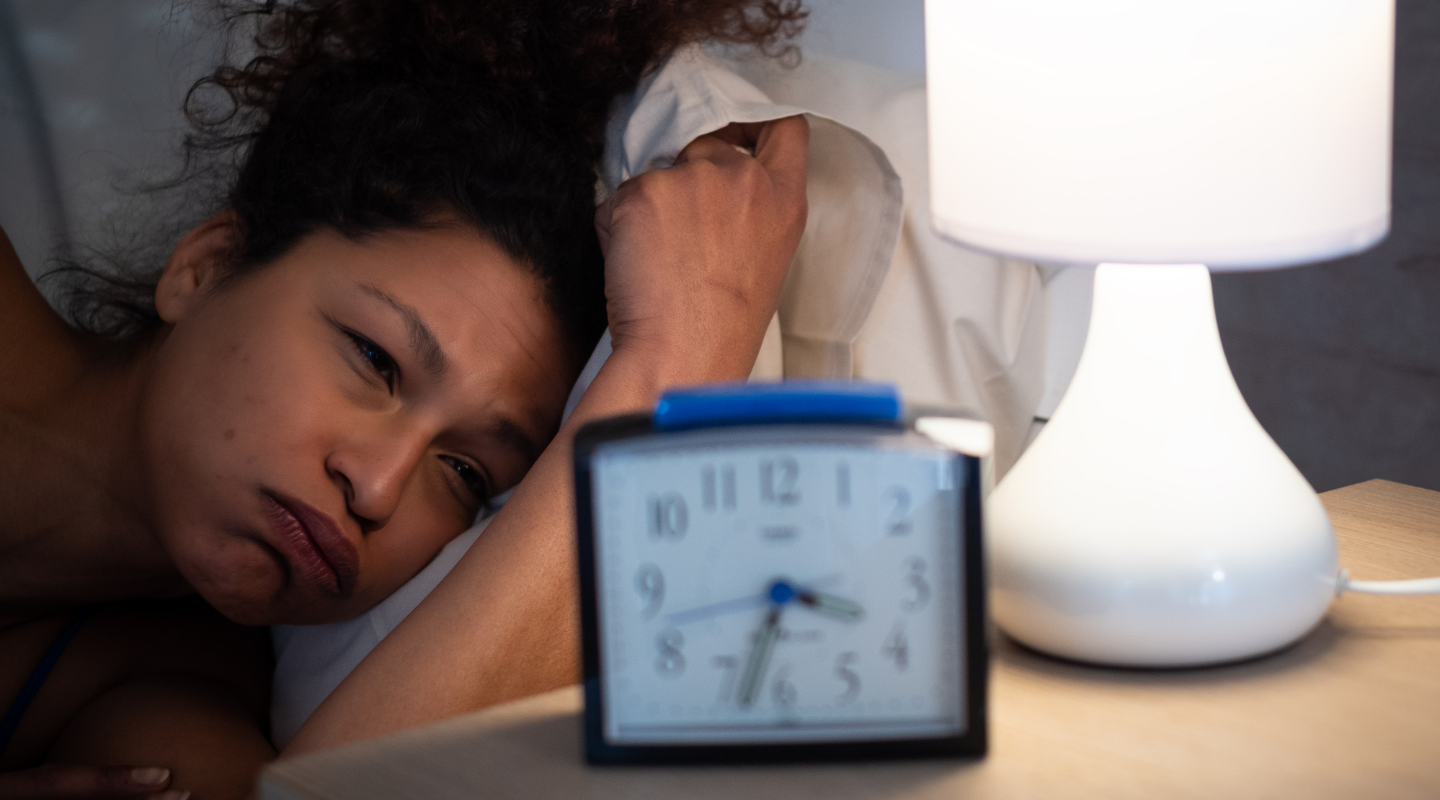
Updated July 1, 2022
Learn how the way you eat during the day impacts your sleep at night, and how you sleep at night impacts your food choices during the day.
We’ve all had those day when you’re just tiiiiiiiredddd. Maybe the baby kept you up, maybe you decided one more episode was worth a little less sleep, or maybe you were out late enjoying some time with your friends or family. All legit reasons to miss some shut eye. However, if you find yourself tired more often than you’d like, and you suspect it’s because you’re not getting good sleep, it’s time to make some changes.
Sleep is hard to ignore because you often feel the immediate impact of not getting enough. However, if you are getting less than 7 hours of sleep on a regular basis, you are increasing your risk for some serious health complications in the future. There are many studies that show individuals who are sleep deprived (less than 7 hours of sleep) are more likely to suffer from obesity, diabetes, and cardiovascular disease. In the shorter-term, it can also lead to hormone imbalances, difficulty regulating your mood, and more trouble focusing and making decisions.
It’s also important to note that “good sleep” is measured in a few ways:
Your quality of sleep can depend on so many things:
There are many resources out there that help you establish a solid nighttime routine, so for our purposes here we are focusing on the thing you do throughout the day: eat and drink. This is probably the hardest because when you wake up in the morning you aren’t thinking about how your breakfast is going to impact your sleep … but it can.
The nutrients we get from food are the building blocks for the hormones and amino acids needed in sleep. The melatonin and insulin levels needed to sleep are impacted by your eating, while the ghrelin and leptin hormones are impacted by your sleep.
So it’s a cycle … The way you eat during the day impacts your sleep at night AND your sleep at night impacts your food choices during the day.
For example, when sleep for a short amount of time, or that sleep is interrupted, you are tired and tend to make worse food choices. Not only that, but your body is craving energy which is most quickly supplied by carbohydrates, specifically sugary and processed carbohydrates. Your hormones are aiding in the battle by telling your body that you are hungrier than you really are. All because of a lack of sleep.
On the flip side of the research, it is well documented that a diet high in sugar and carbohydrates (more than 50% of your daily intake) leads to poor sleep quality. Additionally, when individuals consumed energy drinks or caffeinated beverages their sleep was impacted. Caffeine can be a little controversial because everyone is impacted by the substance in a different way; however, we do know that it takes 6 hours for caffeine to be completely rid from the bloodstream, so time that afternoon cup of Joe accordingly. The research has also shown individuals who skip breakfast and/or eat irregularly during the day tend to struggle with sleep quality more than those who follow a consistent meal pattern.
While the research surrounding specific foods to promote sleep is young, there are some promising foods such as tart cherry juice (high in melatonin) and complex carbohydrates (high in tryptophan which is a precursor for melatonin and serotonin). There are other ways to use your food to promote sleep:
Doing these things throughout the day, in conjunction with creating a good nighttime routine can help you sleep better. This can allow you to have more energy today, achieve your weight loss goals, and prevent against certain health concerns in the future.
Sources:
https://www.ncbi.nlm.nih.gov/pmc/articles/PMC3763921/
https://www.ncbi.nlm.nih.gov/pmc/articles/PMC5015038/
https://www.ncbi.nlm.nih.gov/pmc/articles/PMC6476615/
https://www.todaysdietitian.com/news/032116_news.shtml
